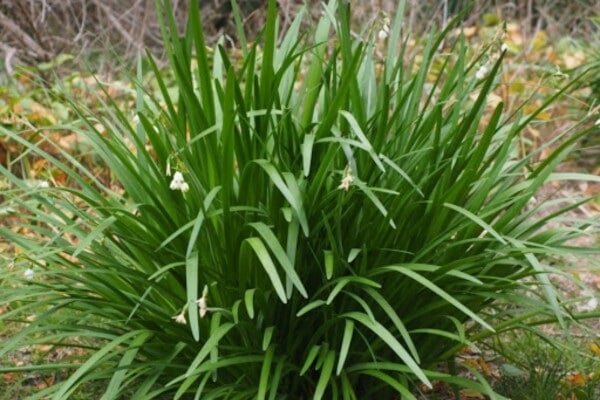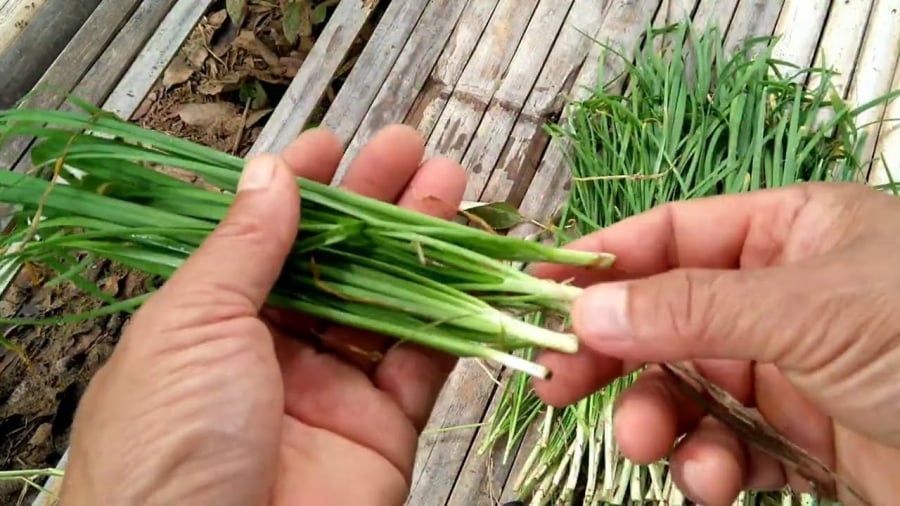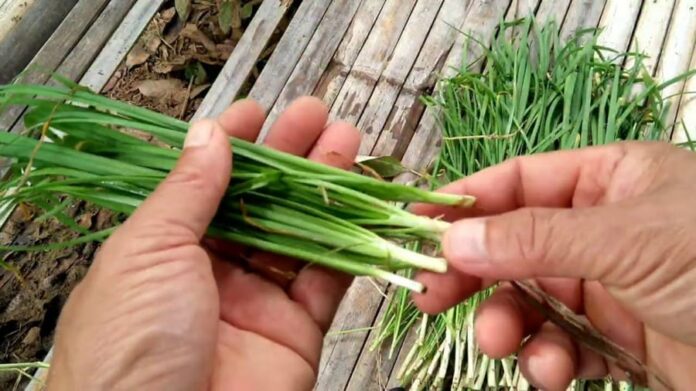In many rural areas of Vietnam, there is a plant that grows in small clumps along fences, in garden corners, or by the porch, looking no different from a weed. Many people, unaware of its value, pull it out and discard it.

Chive Leaves: An Accessible and Nutritious Vegetable
Chive leaves (scientific name: Allium tuberosum) belong to the onion family and are herbaceous perennials with long, slender, dark green leaves that have a mild, characteristic pungent odor. Chives can be perennial, growing in small clumps, and are extremely easy to cultivate, requiring minimal care. Farmers often consider chives a culinary herb, growing them interspersed in their gardens or allowing them to grow wild.
Despite their familiarity, many people are unaware that chive leaves are not just a cooking ingredient but also a valuable medicinal herb in traditional Eastern medicine.
Chive Leaves Stir-fried with Eggs: A Simple Yet Highly Nutritious Dish
With just a handful of fresh chive leaves, quickly rinsed and chopped, and stir-fried with eggs, you have a delicious dish of eggs and chives—a dish synonymous with the childhood of many.
Apart from being tasty, soft, and easy to eat, this dish offers a multitude of health benefits:
-
Boosting immunity: Chive leaves are rich in vitamins A, C, and K, which enhance the immune system and help prevent colds and flu.
-
Beneficial for the lungs, treating coughs: In Eastern medicine, chives are considered warm and pungent, aiding in dispelling phlegm and soothing the throat. They are particularly beneficial for individuals with coughs, especially children.
-
Improving digestion: The fiber in chives aids digestion and reduces bloating and indigestion.
-
Enhancing male sexual function: Chives have long been recognized as a natural “herbal remedy” for improving male sexual function.
-
Beneficial for cardiovascular health: The natural antibiotic allicin in chive leaves helps lower cholesterol and supports blood pressure control.
Traditional Remedies Using Chive Leaves
In addition to culinary uses, chive leaves are employed in traditional remedies, such as:
-
Treating coughs in children: Steam chive leaves with rock candy and give the concoction to children two to three times a day.
-
Relieving back pain and knee pain: Crush chives, mix with alcohol, and apply topically to the affected area.
-
Treating acne: Crush chive leaves and apply the paste to inflamed areas to reduce swelling and kill bacteria.

Precautions When Using Chive Leaves
While chive leaves offer numerous benefits, they should be consumed in moderation. Avoid overeating in one sitting, especially for those with a hot constitution or acne-prone skin. Pregnant women and individuals undergoing medical treatment should consult a doctor before using chive leaves as medicine.
Chive leaves, though seemingly insignificant, possess a wealth of nutritional and medicinal properties. A simple dish of eggs and chives can become a “nutritious tonic” for the entire family, especially during seasonal changes or unpredictable weather.































